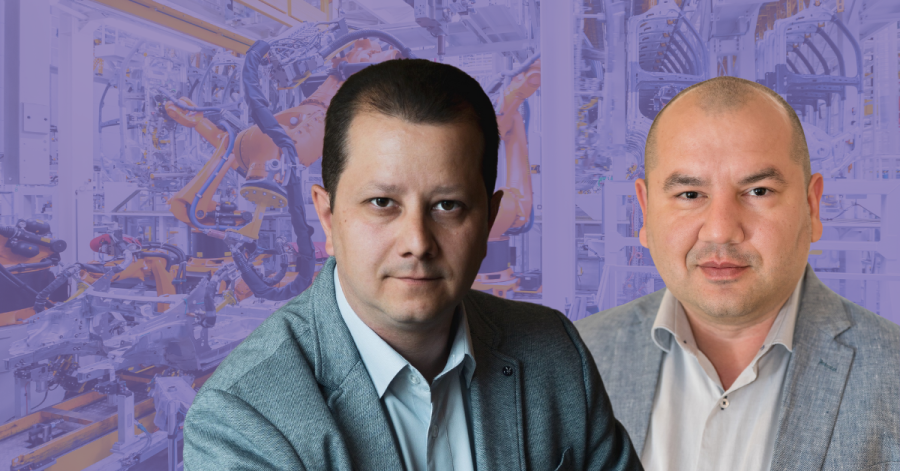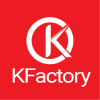Given that the manufacturing industry remains a major contributor to society, the need for digitalization becomes evident – with startups playing a vital role in reshaping the sector.
Having seen the need for innovation in the manufacturing area, particularly in the robotics, AI, sustainability, and security niches, for the past six years, KFactory – a Romanian Industry 4.0 scaleup – has been engineering process automation solutions for manufacturers.
After securing €200K in 2020 to support their Team of Virtual Engineers and then €600K in 2022 to help enter the new market, now KFactory shares insights on the use of computer vision in manufacturing that can help both startups and manufacturers gain a competitive edge and deliver real value.
KFactory’s computer vision technology streamlines operations in manufacturing
KFactory, founded in 2017 by Vlad Cazan and Adrian Dima, is helping manufacturing companies boost quality control operations and time and cost management.
How? Via the adoption of ML and AI and real-time visual data, KFactory tackles data collection and reporting challenges in manufacturing and helps improve both safety and quality.
As Adrian Dima, Co-founder and Technical Lead at KFactory, explains:
“By implementing a system that can precisely identify and track every product without impacting operator work, we were able to overcome the challenges of no real-time visibility and no centralized data on efficiency. Real-time image capture and automated classification, coupled with backend automation and data consolidation, have allowed us to create a secure, reliable, and scalable solution that has drastically improved our production and quality processes.”
KFactory’s computer vision solutions powering manufacturing efficiency | A case study
KFactory partnered with a German leader in the electrical engineering industry – with a focus on aesthetic and functional connection points, connector strips, power distribution options, and high-performance power distribution units. The company was experiencing challenges deriving from the fact that production and quality data was being collected on paper and there was no real-time visibility of efficiency and performance. Putting tech into practice, KFactory’s tailored their vision solutions to the needs of their client to boost decision-making and optimization potential. To improve assembly line efficiency and quality control, help automate reporting in real-time across the thousands of product categories the client has, and reduce delays coming from in-hand procedures and Excel tables, KFactory came up with a solution to identify and track products without affecting operator work.
With a novel model and strategically placed cameras along the line, KFactory helped reduce the time between detecting unknown products and starting to recognize products automatically to 30 minutes, reaching a 99% automatic recognition level.
Further, the technology provided by KFactory allowed new categories to be added, enriching the existing image database and reducing manual data collection. It also supported employees to classify products and report defects, eliminating errors and allowing full visibility of processes and roles after each shift. It’s worth noting that data was fed daily to a centralized platform to support analytics and improve operations.
As Vlad Cazan, Co-founder and Sales Lead at KFactory, said:
“Collaborating with the client in the electrical engineering industry was a great opportunity for KFactory to showcase our expertise and provide them with a solution that addressed their need for real-time monitoring and data automation. By partnering with us, the client was able to improve their overall activity, and by being an early adopter of technology, they have gained an edge over their competitors.”
Why startups become pivotal in the manufacturing sector
With their partnership in Germany, KFactory proved that startup technologies are in high demand to close the innovation gap in manufacturing. AI, robotics, and data analytics can streamline production processes and unlock unprecedented opportunities, and it’s no surprise that Industry 4.0 startups witnessed a 319% increase in funding between 2011 and 2021, with the year 2021 marking a total of $2.2B of funding allocated to such startups.
For example, manufacturing companies that partner with startups can improve quality and efficiency, reduce costs and downtime and prolong the lifespan of their products, while at the same time, they can gain market leverage over competitors by being adopters of such early technology. On the other hand, startups partnering with manufacturers can find unique niches and partnerships and allocate resources and areas of growth strategically.
KFactory, currently raising a Series A round, is intending to explore further the Dutch, British, and Romanian markets. So we can only wait and see how this Romanian scaleup can transform global manufacturing.





